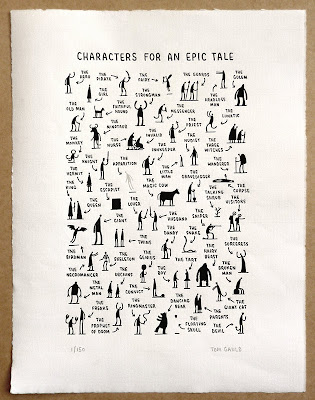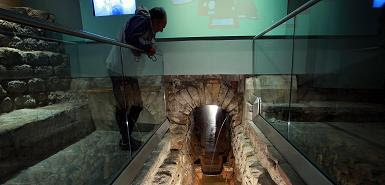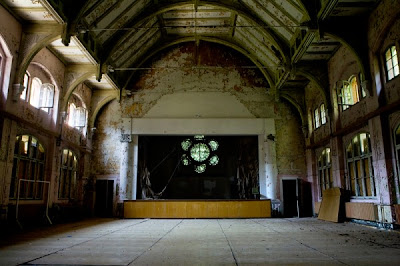That most Europeans, Iranians, and people of northern India speak Indo-European languages is one of those elephant in the room sort of facts. When the connections between these languages were first discovered, 19th-century historians imagined a wave of battle-ax wielding barbarians emerging from the Ukrainian steppe around 2500 BC and sweeping down on the unsuspecting peaceful farmers of Eurasia, killing or enslaving them and imposing their languages across the continent. Unfortunately for this theory, there is next to no archaeological evidence for such people or their invasions. To make matters worse, the theory became the pet historical model of various European racists and imperialists, and it was of course beloved of the Nazis. Embarassed, intellectuals looked away from the elephant. (Ignore it. Maybe it will go away.)
But the elephant stubbornly refuses to go away. The latest attempt to make it disappear was the idea, associated with British archaeologist Colin Renfrew, that Indo-European languages emerged from Asia Minor and spread with farming. There was certainly good archaelogical evidence for the spread of farming from the Middle East into Europe, and the fulminations 0f linguists who said that the history of the languages could not be made to fit this model were largely ignored. The Indo-European farmers model has now been widely enough accepted to be written into
textbooks. It fits the prevailing archaeological ethos of the post-Nazi twentieth century, which emphasized local development and peaceful, gradual change, not invasion, conquest, or revolution.
Now we have a new kind of data, genetic material from both modern populations and prehistoric skeletons. Archaeologists went to this data looking for the answer to a question that emerges naturally from their model of the past: how many of Europe's first farmers were immigrants from the Middle East, and how many were native hunter-gatherers who took up farming? And, as a corrollary, are more modern Europeans descended from immigrant farmers or native hunter gatherers? It was quickly established that most of the first farmers were immigrants, and that the native hunter-gatherers have few modern descendants.
But,
as it turns out, modern Europeans are also not descended from those first European farmers. Puzzled expressions all around:
Now, a team from Mainz University in Germany, together with researchers from UCL (University College London) and Cambridge, have found that the first farmers in central and northern Europe could not have been the descendents of the hunter-gatherers that came before them. But what is even more surprising, they also found that modern Europeans couldn't solely be the descendents of either the hunter-gatherer alone, or the first farmers alone, and are unlikely to be a mixture of just those two groups.
"This is really odd", said Professor Mark Thomas, a population geneticist at UCL and co-author of the study. "For more than a century the debate has centered around how much we are the descendents of European hunter-gatherers and how much we are the descendents of Europe's early farmers. For the first time we are now able to directly compare the genes of these Stone Age Europeans, and what we find is that some DNA types just aren't there - despite being common in Europeans today."
At this point the bemused observer points to the elephant in the corner: what about Indo-European invaders? Could those mysterious genes maybe have arrived with the languages? "What elephant?" say the archaeologists. "I don't see any elephant. But what a puzzle this is!"
Meanwhile, in India, nationalist historians have been vehemently insisting that their Indo-European languages are native, so if there has been any migration it must have started in India and moved west into Asia. That this is archaeologically and linguistically absurd does not seem to bother them. Evidence that India contains two genetically distinct populations, one in the south related to Australians and one in the north related to west Asians and Europeans, has been ascribed by them to waves of settlement that arrived from Africa at least 40,000 years ago. (Elephant? What elephant? That is only a statue of Ganesh, our beloved native deity!)
I don't mean to say that the problem has any simple answer. As I said, the model that makes the most linguistic sense -- waves of people emerging from the steppes and spreading east and west -- almost completely lacks archaeological confirmation. But that does not banish the elephant. The languages are themselves historical data of the highest importance, and they speak eloquently of migrations and connections, not local developments. The genetic data ads to the picture, and it again speaks of migrations and connections. Who the people who moved were, and what they carried with them, we do not know, but I believe their existence is as certain as any fact about events of 4,000 years ago ever can be.
 I have two reactions to the news from Switzerland, where voters approved a law that bans all new minarets. The first is that it is wrong, and the second is that everyone should have seen it coming. I think anti-immigrant, anti-Muslim sentiment in Europe is still at the bottom of a slope that has a long way to rise. I expect to see much more of far-right, anti-immigrant politicians and their parties, and I expect to see more measures like this minaret ban and the French head scarf ban. Many Europeans feel that their identities are under siege, and they are going to lash out. Their hostility is fully reciprocated by many European Muslims, who give at least verbal support to terrorists. I don't want to exaggerate; obviously no European country has yet elected a government sworn to stop immigration, and many Muslim immigrants are quite happy to be in secular Europe. But the tensions are there and they are not going away.
I have two reactions to the news from Switzerland, where voters approved a law that bans all new minarets. The first is that it is wrong, and the second is that everyone should have seen it coming. I think anti-immigrant, anti-Muslim sentiment in Europe is still at the bottom of a slope that has a long way to rise. I expect to see much more of far-right, anti-immigrant politicians and their parties, and I expect to see more measures like this minaret ban and the French head scarf ban. Many Europeans feel that their identities are under siege, and they are going to lash out. Their hostility is fully reciprocated by many European Muslims, who give at least verbal support to terrorists. I don't want to exaggerate; obviously no European country has yet elected a government sworn to stop immigration, and many Muslim immigrants are quite happy to be in secular Europe. But the tensions are there and they are not going away.





























